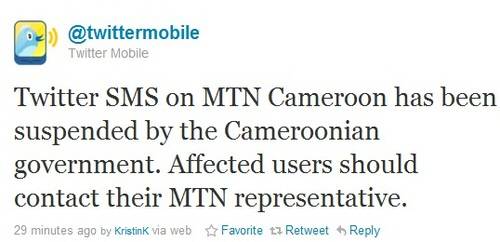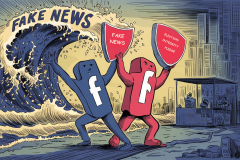In an attempt to stave off future Tunisia- and Egypt-inspired opposition protests, the government of the West African state of Cameroon has banned mobile Twitter.

The opposition had planned protests against the country’s longtime president, Paul Biya, last month. But those were put down by security forces. Clearly, President Biya believes he can cut off future protests by eliminating one of the tools those protesters might use.

Twitter is Magic!
The ban keeps an interesting issue alive. As I discussed in my review of “The Net Delusion,” it is easy for actors on both sides of a political struggle to over-emphasize the power of a given social media tool. On one side, there is a belief that Twitter or Facebook, for instance, will provide protesters with a tool against which no government can prevail. On the other side, governments can wind up believing the same thing, so they presume that if they simply eliminate that tool, any protests will fail.
The truth is, social media is very valuable to those who wish to be heard and who wish to communicate with each other. Like any element in a struggle it can provide the straw that breaks the camel’s back. But finding the social media tool that “guarantees” a protest will be successful (or fail) is a lot like a business instructing its marketing department to “make a viral video.” You just don’t know what tool will be the make-or-break.
Lessons Unlearned
But that is not the only lesson that the Cameroonian government failed to learn, according to blogger Dibussi Tande. Due to the government’s ban, any Cameroonians who did not know Twitter was available on their mobile phones do now. If they did not know the tool had a political use, they know that as well.
Another lesson they missed?
“The government has also completely misread the lessons of the (Tunisian) protests; even though Twitter played a prominent role in informing the world of what was happening in Cameroon, over 95% of the tweets which the international media relied on for updates did not originate from within Cameroon. It was information obtained via mobile phones, regular SMS and email.”
In banning the microblogging service, Cameroon joins the august company of China, Iran, the United Arab Emirates, Pakistan and Libya.
Other sources: Foreign Policy










